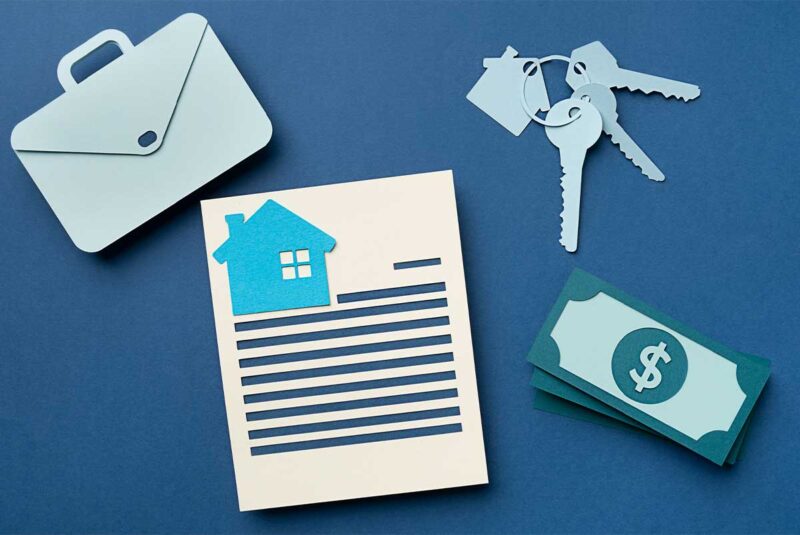Ready To Buy a Home?
Get Approved to Buy a Home
Rocket Mortgage® lets you get to house hunting sooner.
Getting preapproved for a mortgage is the first big step in the home buying process. It can help you get your purchase offer accepted because it signals to the seller that a lender is willing to loan you money to buy a house.
A preapproval is a lot of things, but here’s something it isn’t: It isn’t a guarantee that your mortgage application will get approved.
But if you stick to the same strategy that got you preapproved – and you watch out for common mistakes made after preapproval – you’ll have an easier time going from mortgage preapproval to mortgage approval.
Let’s recap what happens after you get preapproved then go through some quick tips to help you successfully close on your new home. 😃
What Happens After You’re Preapproved for a Mortgage?
Pretty much the whole house buying process happens after preapproval.
Your preapproval will carry the most weight during the:
- House hunt
- Purchase offer
- Negotiation phase
After that, you’ll enter the mortgage application process, where your mission is to get final approval on the loan. At this point, it’s all about trying to preserve the financial situation that got you the preapproval. 👍
You can check out our guide to mortgages to learn more about the mortgage process. But here’s a quick lowdown on what happens after you’re preapproved for a mortgage:
1. Your lender sends you a preapproval letter
Once your mortgage lender has preapproved you for a home loan (usually in 1 – 2 days), they’ll send you a preapproval letter stating the purchase amount you’ve been preapproved for. Ask for a digital version of the letter, so it can be emailed to you right away.
The letter may also include key details of the loan they’re offering you, including:
- Down payment amount
- Loan amount (purchase price minus down payment)
- Loan type you’ll be applying for (conventional loan, FHA loan, VA loan, etc.)
- Lender’s initial interest rate estimate (this could change later)
2. You compare preapproval letters from multiple lenders
Home buyers who get preapproved before starting their house hunt can use their preapproval letters to help them shop for a lender.
Ask for a preapproval letter from each lender. Having multiple preapproval letters can help you decide on your preferred lender and negotiate favorable loan terms with them.
3. You include your preapproval letter in a purchase offer
The preapproval letter will strengthen your purchase offer. You’ll be taken more seriously by the seller, and it can help your offer stand out among multiple offers.
4. You sign a purchase agreement and apply for the mortgage
Once you get an offer accepted on a house, you notify your lender, and they immediately move your file into the mortgage application process.
Some of the information you provided when you got preapproved will be used during this phase. But head’s up! The loan officer who helped you through preapproval will often ask for more documents, making sure to “cross the t’s and dot the i’s” before sending your application to the underwriter.
You may think you applied at the preapproval stage, but your application is considered complete once you have a purchase agreement in place for a property.
5. You wait while your mortgage application is reviewed (the suspense!)
In the underwriting stage of your application, the underwriter will get into the nitty-gritty of your finances and credit history, meticulously analyzing them.
You may have questions during this time, but the underwriter may not take your call, respond to that DM and certainly won’t accept your friend request. If your underwriter has any questions – or concerns – they’ll often relay them to your loan officer, and your loan officer will relay them to you.
Tips for After You’ve Been Preapproved
The underwriting phase can be challenging for a lot of people. You want to do everything you can to make sure it goes smoothly and works out in your favor.
If you want the underwriter to be a big fan of your finances and give you the clear to close, the following tips can help you show them what a reliable and creditworthy borrower you are. 🙌
Tip 1: Pay all your bills
Protect your credit score! Paying your bills on time is one of the most important things you can stay on top of during this time.
Sure, you’ve been preapproved – but you can’t rest on that achievement. Your lender is going to run another credit check on you during underwriting. Make sure you don’t dull the shine on your credit score or payment history with missing payments.
Tip 2: Avoid making your bills bigger
Piggybacking off Tip 1, do everything you can to avoid using your credit card during the mortgage application – especially for LARGE purchases. 🙏
There’s no standard amount that qualifies as a large purchase – but the more debt you take on, the higher your debt-to-income (DTI) ratio gets. If that happens during the underwriting phase, it could delay closing, or worse yet, cause the lender to deny the loan.
Now would not be the time to take out an auto loan or use your credit card to buy furniture before closing. Your best bet is to wait until the house keys are safely in the palm of your hand.
However, many lenders make allowances for necessary hikes in bills that can be justified. Be prepared to write a letter of explanation if asked.
So, if you start getting billed for a recent medical procedure, don’t panic. Your lender will likely disregard that debt.
Tip 3: Minimize your cash purchases
Using your debit card to make a large cash purchase may help you avoid any issues that might come up if you used your credit card.
The drawback is that using your debit card could deplete the funds you’d need for your down payment or closing costs. Even if it wouldn’t, having as much cash as possible saved for unexpected homeownership costs is always a good idea.
Tip 4: Stay at your current job (for now)
If your new hobby is job hunting on LinkedIn, try to wait until after you’ve closed on the house before switching bosses.
Your mortgage application may be affected if you get a new job. Even if your new salary is higher than your current one (👏💰🎉), it could delay closing if the lender requires pay stubs from your new employer.
If you do switch employers during underwriting, let your lender know ASAP. There’s a chance their underwriter may even accept an offer letter with your salary on it rather than wait for pay stubs.
Tip 5: Keep your money where it is
It could work against you if you frequently move money between your bank accounts in the months leading up to closing day.
Moving a hundred dollars from one account to another to cover a bill is typically fine but moving larger amounts might not be. Nonstop money transfers can make it harder for an underwriter to verify that you have enough income to afford the house. If you have any questions, reach out to your loan officer and they’ll offer you the best advice.
The loan process could get even more complicated if the lender starts requiring that you provide an explanation and documentation of where particular deposits came from.
Tip 6: Keep a paper trail
While you’re in the preapproval phase, you’ll want to start anticipating the kinds of documents your lender will require during the underwriting process.
For example, you may need to show where deposits (or deposits over a certain amount) came from if they didn’t come from your paycheck. This could be anything from a tax refund to a performance bonus at work.
Ask your loan officer what things you should start keeping track of now (with receipts, bank statements, etc.) so you don’t have to scramble later.
Definitely be prepared to share things like bank statements, tax returns, W-2s and 1099s with your lender (among other documents).
Tip 8: Don’t open a new credit account
No, it’s not déjà vu all over again! Yes, we discussed using (actually, not using) a credit card during the mortgage process, but opening a new line of credit can open up a new can of worms. Same goes for taking out a personal loan.
Even if you’ve met all the conditions of the mortgage loan and expect to get final approval from the underwriter, you could worry them by taking on new debt out of the blue – and so late in the game. This could delay closing on your home or cause your mortgage interest rate to go up.
Tip 9: Don’t pay off your existing debt
You might think that paying off some or all of your existing debt might help you get your mortgage approved – but will it? Cash is king when you’re buying a house, so having cash in hand might be more valuable to you than a smaller debt load.
Remember that you’ve already been preapproved based partially on a credit check, so you’ll be in a strong position even without paying off your debt. That is, as long as you haven’t added on any new debt since your preapproval (see above).
Tip 10: Don’t ghost your lender
Your underwriter won’t be on demand for you – but YOU need to be on demand for your lender. Start thinking of yourself as a streaming service provider of all things related to your debt and income.
Return calls from your lender ASAP. Whenever your loan officer asks for additional information on behalf of the underwriter, provide it promptly – and don’t miss any details. Providing what they need fast can help keep things moving on schedule, so you can close on time.
They may request (on behalf of the underwriter):
- Verification of employment and/or income
- Proof of home insurance
- Previous years’ tax returns
- Confirmation on particular bank deposits
- Specific information about your debts, including lines of credit
- A gift letter (if someone is gifting you money for your down payment)
- A letter explaining a recent change in your credit or unusual bank deposits
Embrace Your Post-Preapproval Powers
Getting preapproved for a mortgage is a big deal – especially for a first-time home buyer about to enter a competitive housing market.
If you’ve gotten preapproved, congrats! You’ve leveled up your home buyer game.
But remember, there are more steps on your journey to homeownership that go beyond preapproval. Your lender can still deny the loan based on what they learn during the underwriting process. This can make waiting for the news that your mortgage has been approved (aka “clear to close”) an anxious experience even for financially confident buyers.
But you’ve got this! You’re prepared and you know what to do. (And if you ever forget, our guide is always here.) And quite frankly, that’s quite the flex, future homeowner! 💪
Get approved to buy a home.
Rocket Mortgage® lets you get to house hunting sooner.
The Short Version
- Getting a preapproval from a mortgage lender can help get your offer accepted on a house AND help the mortgage application process go smoother
- You could unintentionally make it harder to get your mortgage application approved if you take on more debt during the review process
- Keeping your income and spending stable after being preapproved will look great to your lender




